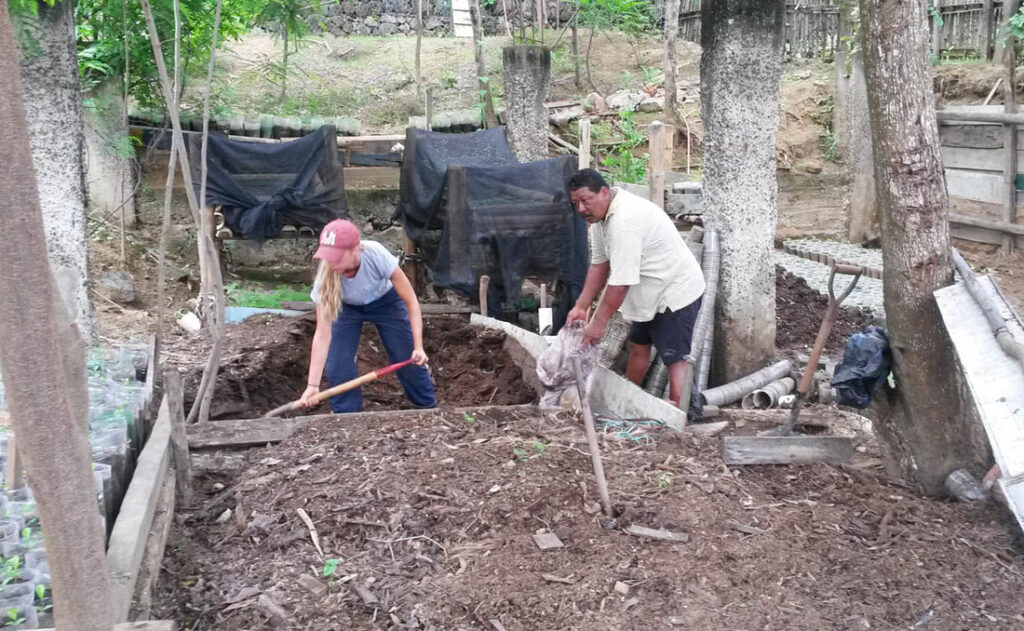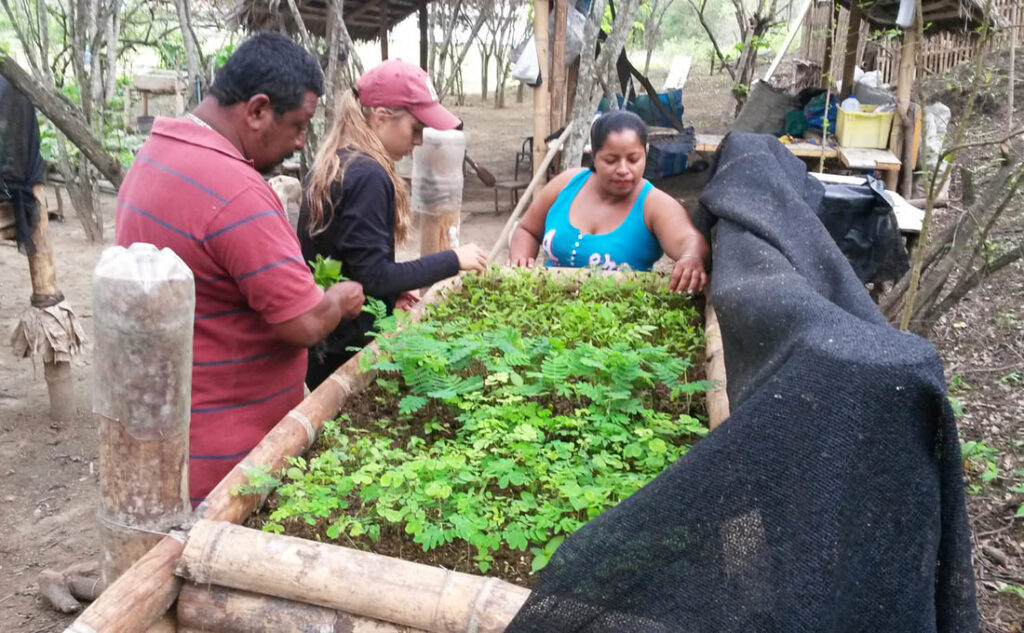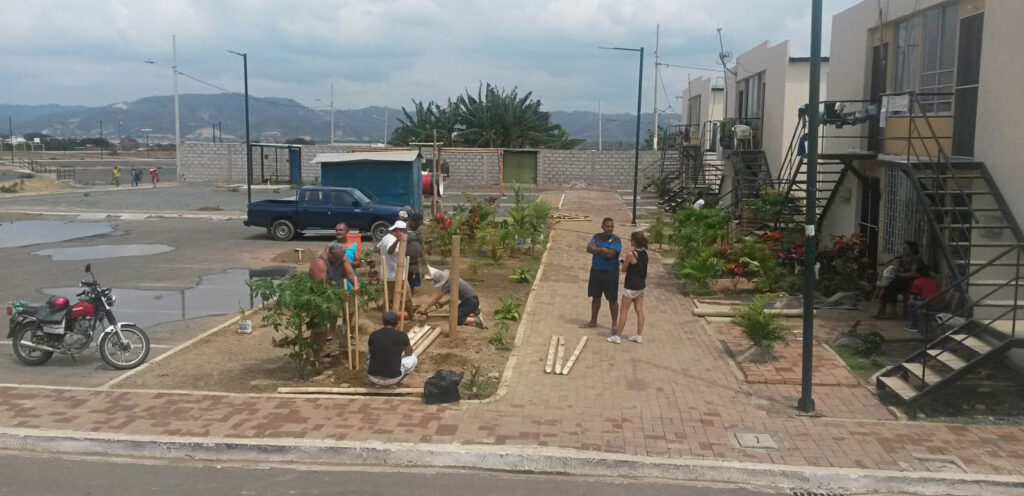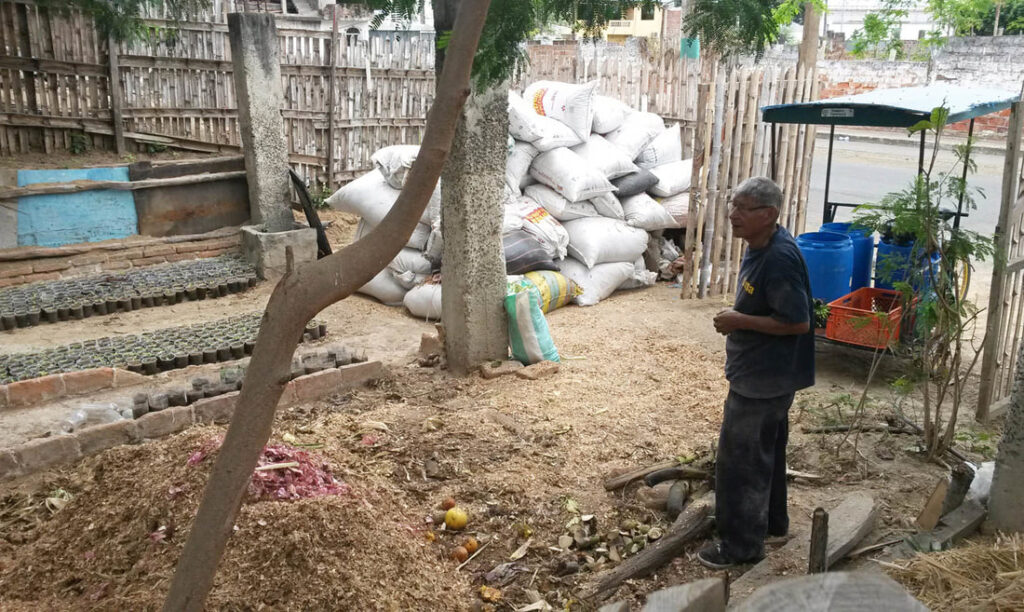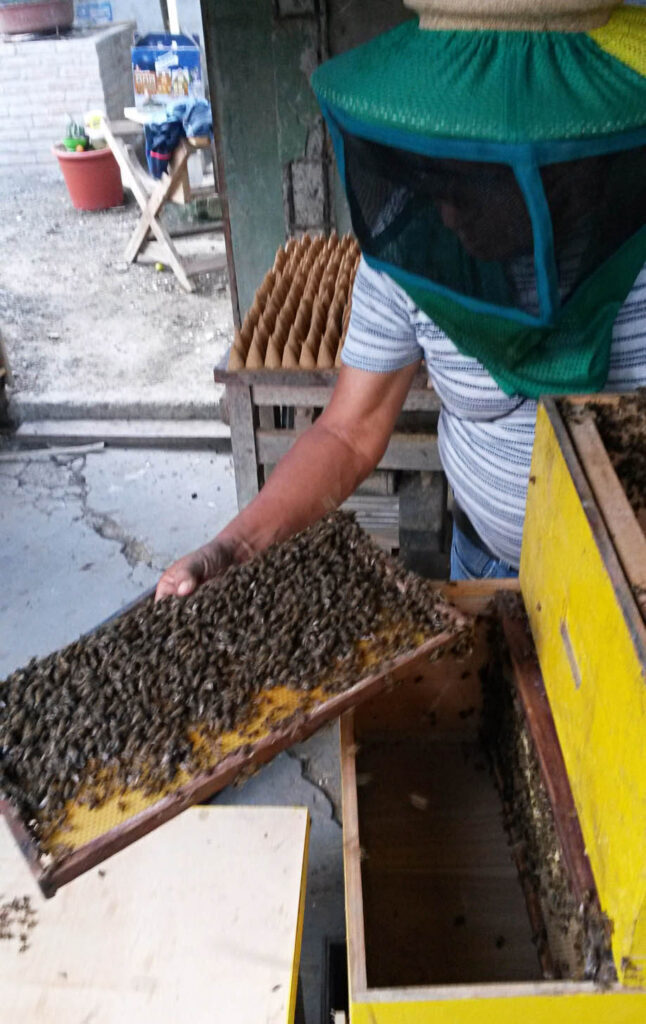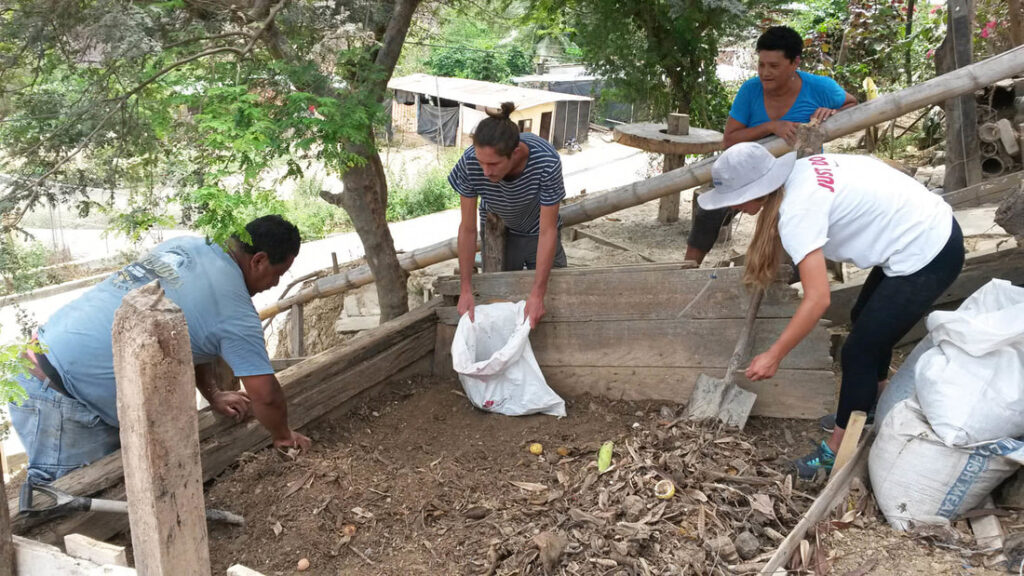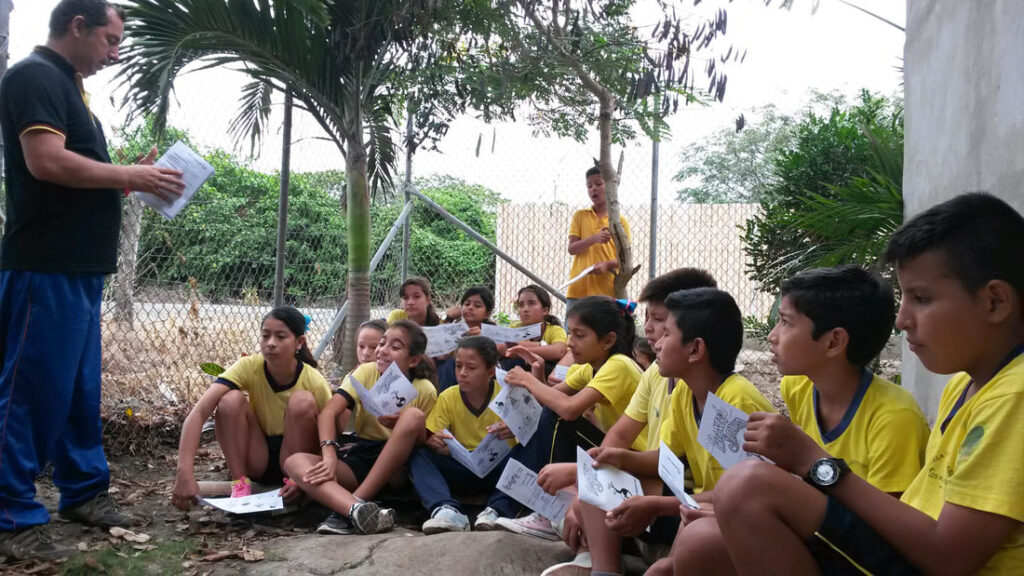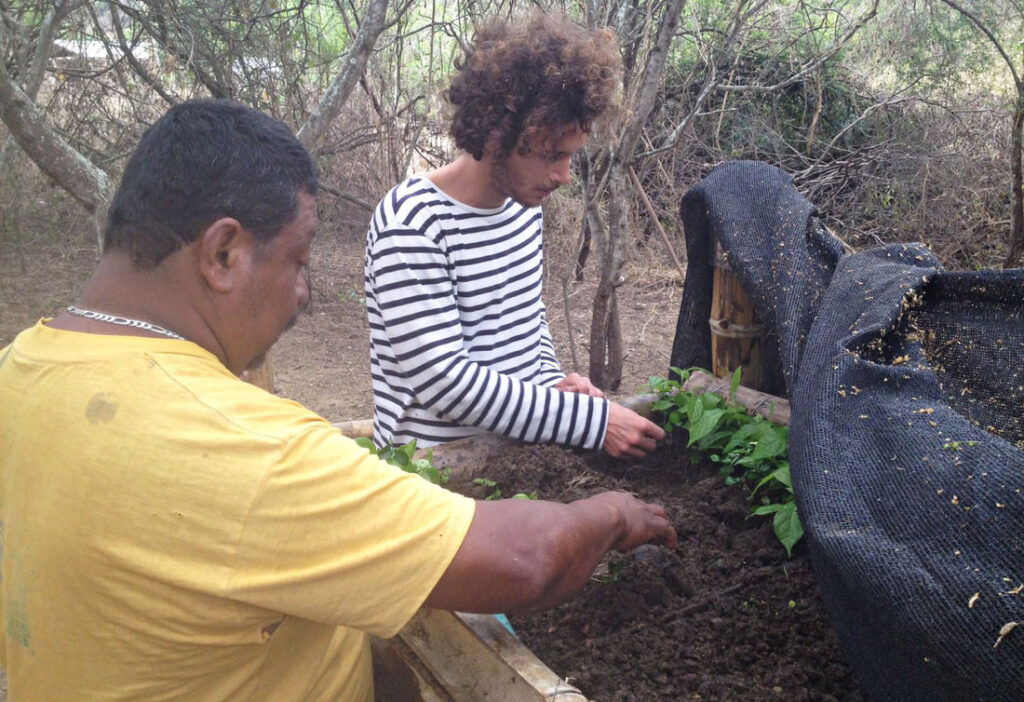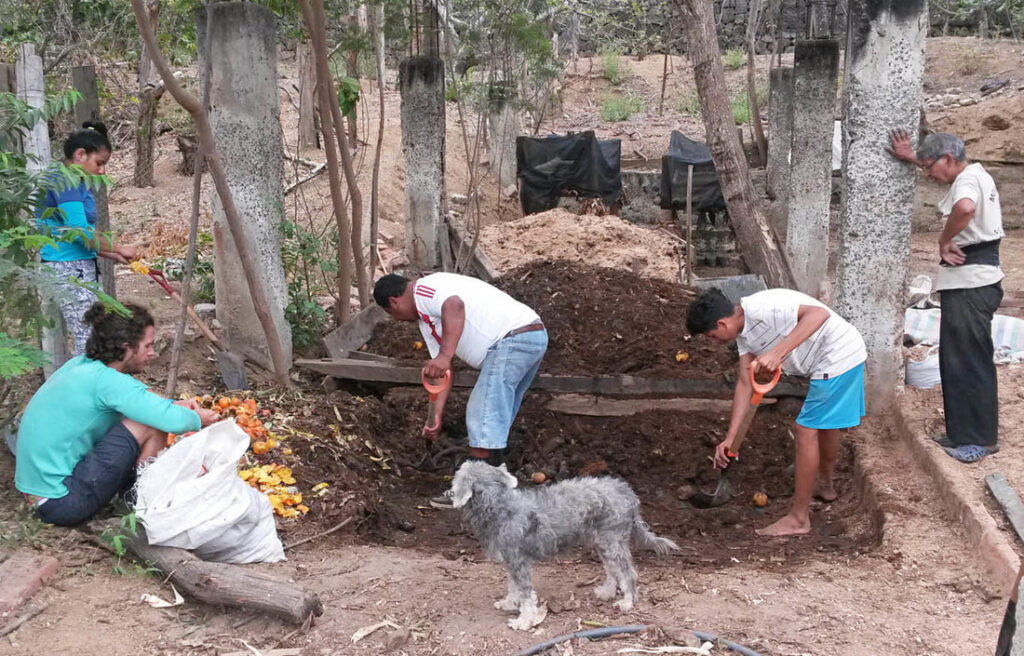Clay Plager-Unger
Clay Plager-Unger is the former director of Planet Drum Foundation's Eco-Ecuador project.
In Astillero, we continue to make improvements to the community greenhouse facility. A roof was built to keep the sacks of sawdust dry. With artistic assistance from Claudia, we painted and installed a sign at the entrance. While the sign was made, the compost piles continued working. About once a month the piles are turned and move along in the process of becoming compost. After […]
The elevated seedbeds at the Planet Drum greenhouse at the Catholic University are bursting with native fruit and forest species seedlings. One has Chirimoya, Tamarind, and Guachapeli trees. Another has various citrus trees, such as Toronja, Mandarina, Naranja, and Lima Naranja. One morning, after weeding the seedbeds, we transplanted seedlings from the seedbeds to repurposed plastic soda bottles. Certain species, such as Mangoes and Guava […]
Many of Bahía’s residents who lost their homes during the 2016 earthquake were relocated into a government subsidized housing development as part of the earthquake recovery. The newly constructed neighborhood near Leonidas Plaza is called “Los Arguellos”. The low-cost housing (4 apartments share each structure to reduce construction costs by sharing common walls and floors) areas are mostly devoid of vegetation and residents are anxious […]
Compost production in the Astillero neighborhood continues at full throttle. We’ve been transporting organic waste from the Bahía to the Astillero for the past five months and already have produced three massive piles of completed compost that is ready to be prepared as planting soil. Jose Maria is using his portion of the compost to plant 2,000 Maracuya plants for his family farm. Meanwhile, Planet […]
Thus far in January, Planet Drum has made significant progress on a new project: beekeeping. At the beginning of the month, Ricardo and Clay visited our friend Miguel Angel (proprietor of La Colmena in Portoviejo) to discuss apiculture. Miguel Angel has been bee-keeping for years and appears interested in sharing his knowledge with anyone willing to listen. While there, he showed us how he was populating […]
The revegetation work in Bellavista continues to strengthen community participation by involving local residents in all phases of tree production and planting. In the process, we are teaching residents about compost production and also lending them a hand with their own new community gardening initiative. The latest development in Bellavista is that we have built a new elevated seedbed at Laura’s house. Background: Laura is Papito’s […]
One of the schools in the region that has participated in Planet Drum’s revegetation activities over the years is the Los Algarrobos School in Canoa. In the past, we always talked about increasing collaboration with them. Now the opportunity has presented itself and after discussing possibilities with Antonia, the school’s principle, we decided to build elevated seedbeds there to further involve the students in the […]
After distributing more than 3,000 trees with the National Electric Company throughout the Manabí region in November and early December, the greenhouse has been left with only a few hundred trees in reserve. While it’s great to be able to reach so many different communities and regions with trees for revegetation with the Electric Company, we have lots of work cut out in order to […]
The National Electric Company “Electric Tree” campaign with Planet Drum used nearly all of 3,000+ trees that were in the greenhouse. After a ceremony at the greenhouse on November 10th, a few contractors returned to pick up additional trees for distribution throughout the province. After giving out most of the saplings at the greenhouse to the National Electric Company, the greenhouse was organized and cleaned […]
We increased compost production at the Astillero greenhouse site as organic waste piled up. One morning was spent doing maintenance to clean up the area and have more space for working. On another morning, we turned the compost piles to facilitate decomposition and collected fruit seeds from over-ripe oranges.

